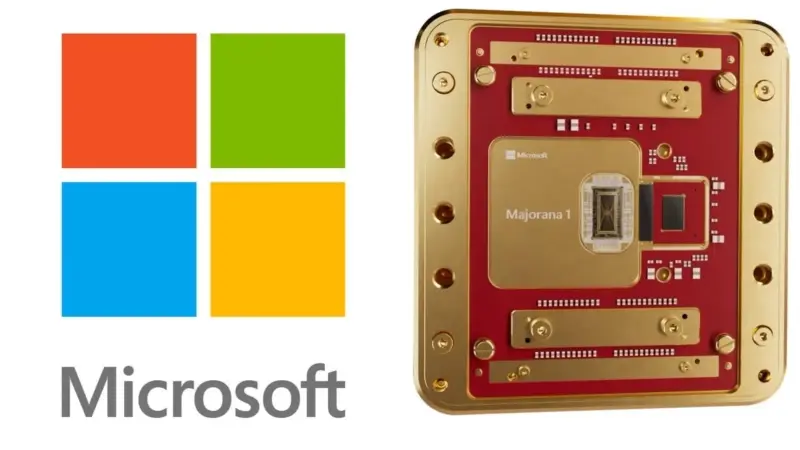Microsoft's New Chip Revives Quantum Computing Prospects
Microsoft's Majorana 1 chip challenges Nvidia's timeline, fueling optimism in the quantum computing sector.

Quantum computing stocks rallied on Thursday, February 20, after Microsoft revealed its new Majorana 1 chip. The announcement has reignited the debate over the timeline for practical quantum computing. Microsoft claims this chip brings the technology "years, not decades" closer to fruition, directly opposing recent statements from Nvidia CEO Jensen Huang that suggested a two-decade waiting period. By aligning with Google and IBM's predictions, Microsoft is stirring optimism in the sector about the sooner than expected arrival of quantum computing applications.
Introducing the Majorana 1 Chip
The Majorana 1 chip is a product of nearly two decades of research and development, utilizing the elusive Majorana fermion, a subatomic particle first theorized in the 1930s. This particle's properties make it inherently less susceptible to errors, a major challenge in the development of quantum computers. Microsoft supports its claims of reduced error rates with evidence to be published in a forthcoming paper in the journal Nature.
What is Quantum Computing?
Quantum computing promises to revolutionize the computing world by performing calculations that are currently impossible with even the most powerful supercomputers. This development could crack existing encryption methods, presenting both opportunities and potential risks for cybersecurity. The primary challenge in quantum computing is controlling qubits, the quantum equivalent of classical bits, which are highly unstable and prone to errors.
The Big Debate on the Quantum Computing Timeline
The differing timelines presented by industry leaders have cultivated uncertainty in the market. Nvidia's CEO's January prediction that practical quantum computing is at least two decades away sent shockwaves through quantum computing stocks, erasing billions in market value and ending a year-long rally. The stocks of quantum computing companies suffered losses in January, despite previously outperforming tech giants like Apple, Nvidia, and Microsoft.
What Nvidia CEO Jensen Huang Said
During Nvidia's analyst day at the CES trade show in Las Vegas, CEO Jensen Huang stated that "very useful" quantum computers may be 15-30 years away. According to him, current quantum computers need a million times more quantum processing units, known as qubits, to become practical. His remarks caused a sell-off in quantum computing stocks, affecting companies like Quantum Corp—a data management firm—and Quantum-Si Inc, a life science company developing protein sequencing platforms.
Nvidia's comments stand in contrast to Google's assertion that commercial applications of quantum computing could be realized in five years and IBM's projection of large-scale quantum computers by 2033. Microsoft's new chip and its optimistic projections now provide a counter-narrative, supporting the argument for a more imminent arrival of practical quantum computing.



